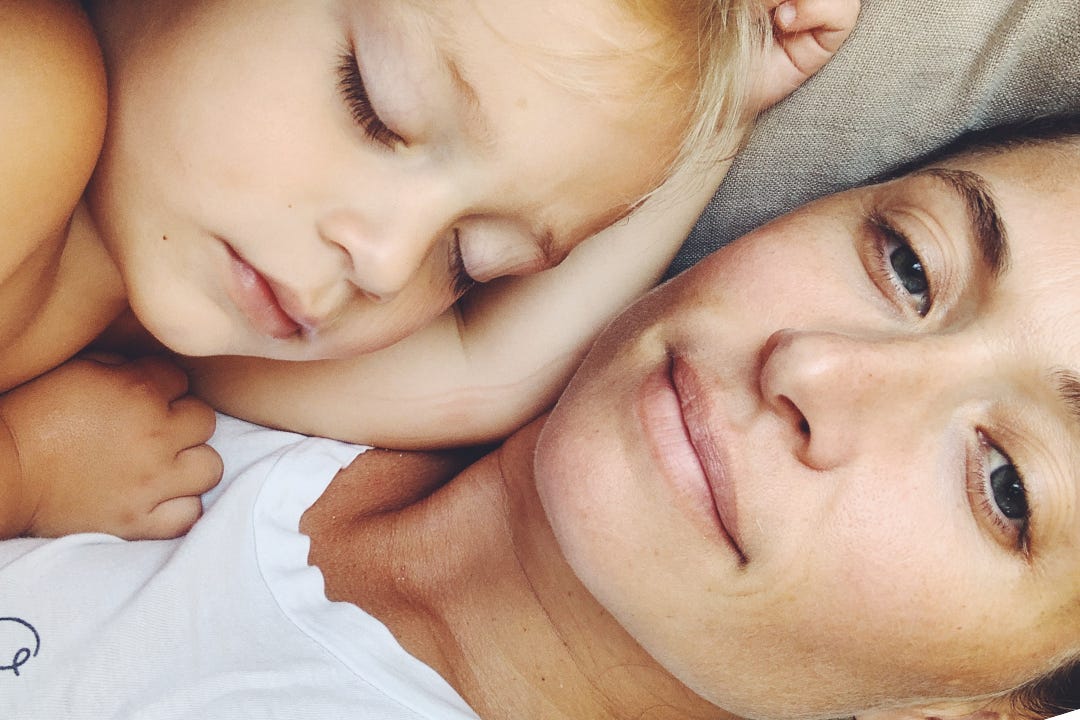Navigating The Holidays With Nicole Makowka
Oh, the holidays, a time that can bring up so much for so many. And now, so many of us parents find ourselves trying to navigate this ordinarily stressful time amidst a pandemic, at-home schooling, stress over work and finances, and so much more. It all feels so heavy during a time of year that is supposed to be joyous and celebratory. So, to help us navigate this unprecedented holiday season, I turned to my dear friend Nicole Makowka. Nicole is a Parenting Coach and Licensed Marriage and Family Therapist who I have known since high school. I wanted to know what most parents seemed to be struggling with this year and what advice she might have for helping us deal with everything that is going during the holiday season and beyond. Here are some of her suggestions for setting boundaries, practicing self compassion, and giving yourself permission to change your mind.
A Q + A with Nicole Makowka, Parenting Coach + LMFT
1) As we come to the end of a rigorous year, what do you find parents are struggling with most?
In the last few weeks, questions about how to navigate this particular holiday season, in this ongoing pandemic, truly as a “first time,” are constantly rolling in. For example, parents are struggling with how to set boundaries (even at a distance) with their extended families. Does everyone share the same comfort levels? Has everyone been abiding by the same “rules”? It can become impossible if everyone isn’t willing to do the work required to really get on the same page. Parents I work with are feeling guilt and even shame about the inability to make a decision that feels “right” for everyone.
2) So let’s talk about boundaries! Some people might be spending the holiday with their families, and some might be celebrating virtually. How can parents comfortably hold boundaries in both situations?
I love talking about boundaries! But, before we talk about keeping them, let’s talk about creating them. What I often notice is that parents struggle with feeling empowered to initially create a boundary. There’s a sensitivity – like a boundary is “too harsh” or that it might be taking something away from someone. I encourage parents to re-frame the thinking around boundaries – make them family values.
For example, instead of saying, “Sorry, this holiday, we really just need to set a limit on having too many plans,” re-frame it as, “Our family has made a commitment to valuing rest this holiday season”. Do you notice how re-framing a boundary with a value feels clear, and less activating? There’s nothing for someone else to take personally, because it’s truly and clearly a value your family is sharing.
Give yourself permission to determine what values you and your family need in this moment, think about how to put that value into practice, and move forward, with confidence, from that place.
3) So many parents are feeling overwhelmed now, in some many different ways, how are you talking them off that ledge we all come to?
Being a parent, navigating the precedent-setting demands of the last 9 months, has been and continues to be depleting. That’s fact. Let us own that, internalize it, and know that we’re not alone.
It’s necessary to really acknowledge that. You have been doing your best, making decisions for your child, yourself, and your family in the most uncertain and ambiguous time.
Take a moment. Take a deep collective breath. Let out a long sigh.
You deserve it – what a year it’s been.
What has become very clear over the last year is that parents need safety nets. And more specifically, they need internal safety nets. What does that mean? It’s an internal commitment to self-compassion. It’s an intentional pause between the critical self-talk and constant barrage of second-guessing.
Parents are struggling with feelings of guilt, specific to the pandemic – and it touches almost every decision – school, daycare, family visiting, working from home…or parenting from work. The one thing that hasn’t changed, but absolutely should, is the story we keep telling ourselves.
Take a moment and reimagine making all of these decisions with this re-framed self talk, “Never before, have parents been asked to take on so many roles at once. I am doing the best I can with the information I have right now. To be the guide my child needs, I make a promise to change my mind as I learn more about this ongoing situation. Not only is that ok – that is exactly what I should be doing. For my child. For myself. For my family.”
Instead of feeling guilt about always making the fixed right choice, feel empowered that this is practicing flexibility, decision-making, and resilience for our kids. The permission you give yourself to change your mind, especially when under pressure, is a powerful tool that you can model for your child.







